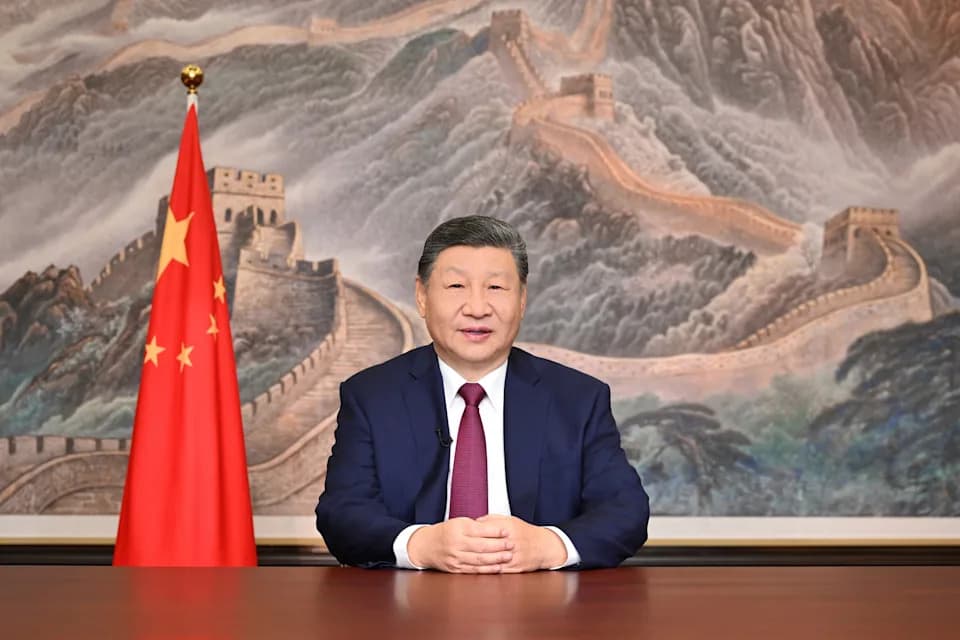Quick summary: China has advised its citizens to avoid travelling to Japan after Japanese Prime Minister Sanae Takaichi said an armed attack on Taiwan could, in some cases, justify a Japanese military response. Beijing’s embassy in Tokyo issued a WeChat travel advisory and both countries summoned each other’s ambassadors following inflammatory online posts. The episode highlights rising tensions between two major trading partners amid long-standing territorial and historical disputes and debate over Japan’s 2015 security laws on "collective self-defence."
China Urges Citizens to Avoid Travel to Japan After Taiwan Remarks by Japan’s New PM

Overview: China has advised its citizens to avoid travelling to Japan following remarks by Japan’s new prime minister, Sanae Takaichi, about a possible military response if Taiwan were attacked. The advisory, posted by China’s embassy in Tokyo on WeChat, warned of risks to the safety of Chinese nationals in Japan and prompted both countries to summon each other’s ambassadors.
Diplomatic Fallout
On 7 November, Prime Minister Sanae Takaichi told Japan’s parliament that an armed attack on Taiwan could, in some circumstances, justify a military response from Tokyo under the country’s 2015 security legislation on "collective self-defence." The comments sparked a sharp reaction from Beijing.
Late on Friday, the Chinese embassy in Japan published a WeChat advisory saying: "Recently, Japanese leaders have made blatantly provocative remarks regarding Taiwan, severely damaging the atmosphere for people-to-people exchanges." The post warned of "significant risks to the personal safety and lives of Chinese citizens in Japan" and urged them to avoid travel to Japan in the near term.
Reciprocal Protests
Both capitals summoned each other’s ambassadors. Tokyo also protested a now-removed social media post by the Chinese consul general in Osaka, Xue Jian, which included a threatening phrase apparently referring to Prime Minister Takaichi. Japan’s ruling party passed a resolution calling for the envoy to be declared persona non grata.
What Takaichi Said and Why It Matters
Takaichi — a conservative seen as hawkish on China and an ally of former prime minister Shinzo Abe — said an emergency involving Taiwan that "entails battleships and the use of force" could amount to a situation threatening Japan’s survival and therefore trigger collective self-defence provisions. Those 2015 laws allow Japan to use force in defence of an ally or partner in narrowly defined circumstances.
Context and Regional Implications
Tensions are heightened because Taiwan lies roughly 100 kilometres (62 miles) from Japan’s nearest island, and Beijing continues to claim Taiwan as part of its territory. China has not ruled out using force to achieve reunification, while Japan and China remain major trading partners whose relationship is frequently strained by historical issues, territorial disputes and defence concerns.
Japan’s Chief Cabinet Secretary Minoru Kihara described Beijing’s travel advisory as "inconsistent with the promotion of a strategic and mutually beneficial relationship," and said Tokyo had asked China to take "appropriate measures."
Looking Ahead
Takaichi has said she will not retract her remarks but will avoid citing specific scenarios in future. Observers say the episode underscores the fragility of regional diplomacy in East Asia and the continuing role of strategic ambiguity — a posture historically adopted by Tokyo and Washington regarding Taiwan’s defence.
Key names: Sanae Takaichi (Japanese Prime Minister); Minoru Kihara (Japan’s Chief Cabinet Secretary); Xue Jian (Chinese consul general in Osaka).
Help us improve.


























